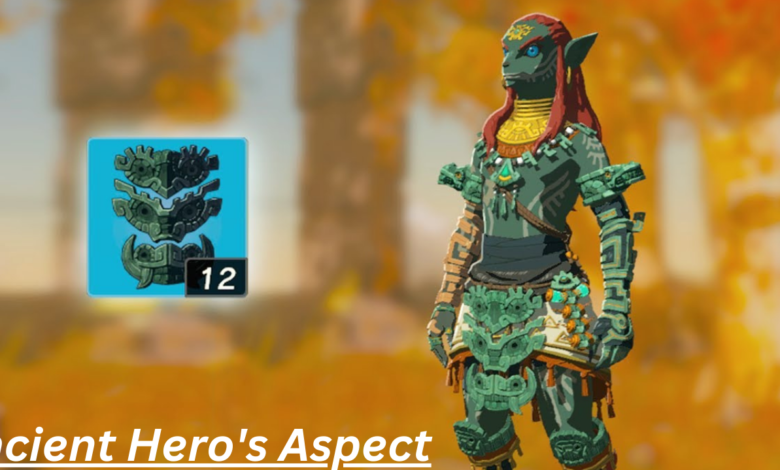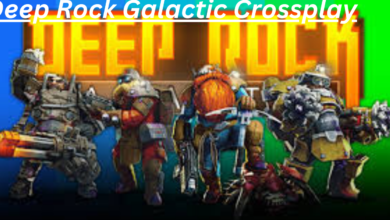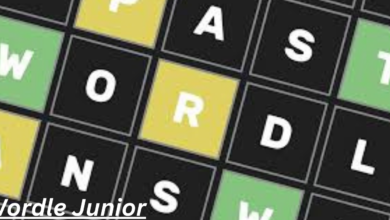Ancient Hero’s Aspect Explained Everything You Need to Know

Heroes have always captivated our imagination. From the epic struggles of legendary figures to their extraordinary feats, these larger-than-life characters resonate with us across generations. The concept of an “Ancient Hero’s Aspect” delves into this timeless fascination. But what does it truly mean?
Understanding the essence of ancient heroes not only reveals much about our history but also reflects societal values and aspirations that continue to shape our cultures today. As we explore this topic, we’ll unravel the origins, traits, and lasting impact of these remarkable figures. So buckle up as we embark on a journey through time and mythology!
Origin and Meaning of the Term
The term “Ancient Hero’s Aspect” captures a profound connection to humanity’s earliest narratives. It reflects an idealized image of individuals who embodied courage, strength, and moral integrity.
Tracing its origins reveals influences from ancient myths and legends. Cultures across the globe celebrated heroes who embarked on epic quests or battled formidable foes. These stories often served as allegories for human struggles.
In essence, this phrase encapsulates not just individual valor but also collective aspirations. Heroes represented societal ideals, inspiring generations with their feats. The “aspect” implies a multifaceted nature—heroes were complex figures shaped by their journeys.
Understanding this term invites exploration into how these heroic qualities resonate through time, influencing modern interpretations of bravery and sacrifice in our own lives.
The Evolution of Heroes in Different Cultures
Heroes have evolved uniquely across cultures, adapting to the values and beliefs of their societies. In ancient Greece, figures like Hercules embodied strength and bravery. They represented the ideal human form, often facing insurmountable challenges.
Meanwhile, in Indian mythology, heroes such as Rama and Krishna showcased righteousness and duty. Their journeys emphasized moral dilemmas rather than sheer physical prowess.
In African folklore, trickster heroes like Anansi taught wisdom through cunning. These characters illustrated that intelligence could triumph over brute force.
East Asian legends feature warriors like Sun Wukong from “Journey to the West.” His mischievous nature reflects adaptability against oppressive forces.
These variations highlight how cultural contexts shape hero narratives. Each culture’s heroes convey deeper truths about humanity’s struggles and aspirations through their unique lenses. This evolution continues to inspire new generations around the globe today.
Traits and Characteristics of an Ancient Hero
Ancient heroes often embody a blend of courage and strength. They face overwhelming odds, yet remain undeterred in their quest for justice or glory. This tenacity is what sets them apart.
Wisdom frequently accompanies their physical prowess. Ancient Hero’s Aspect are not merely warriors; they possess the insight to navigate complex situations, making calculated decisions that reflect deep understanding.
Another significant trait is loyalty. Many ancient heroes demonstrate unwavering commitment to their comrades and ideals. Their bonds with allies highlight the importance of unity against common foes.
Flaws also define these characters, making them relatable despite their extraordinary feats. Whether it’s hubris or a tragic flaw, these imperfections add depth to their journeys.
An innate sense of morality drives Ancient Hero’s Aspect. Their actions often stem from a desire to uphold honor and protect those who cannot defend themselves, ensuring they leave lasting legacies in myth and culture.
Common Themes and Archetypes in Hero Stories
Hero stories often revolve around a few common themes that resonate across cultures and eras. One prevalent theme is the journey or quest. Heroes embark on adventures, facing trials that test their resolve and character. This transformative journey shapes them into legends.
Another archetype frequently seen is the mentor figure. Wise guides offer wisdom and tools to help heroes navigate their challenges. These relationships are crucial for growth, illustrating the importance of support in overcoming adversity.
Sacrifice stands out as a vital theme too. Many ancient heroes make significant sacrifices for the greater good, highlighting selflessness as a core heroic trait. Their willingness to put others first inspires admiration.
Redemption plays an essential role in these narratives. Characters often face past mistakes but strive for atonement through courageous acts, embodying hope and resilience amidst chaos and despair.
Examples of Famous Ancient Heroes
Achilles stands out as a quintessential ancient hero. Known for his unmatched strength and tragic flaw, his story is woven through the epic of “The Iliad.” His journey embodies themes of glory and mortality.
Another iconic figure is Hercules, renowned for his twelve labors. Each daunting task showcases not only physical prowess but resilience in the face of adversity. He symbolizes the struggle against overwhelming odds.
Then there’s Odysseus, whose cunning intelligence makes him an extraordinary hero. His adventures in “The Odyssey” illustrate bravery and resourcefulness on a long quest home after war.
Don’t forget about Beowulf, who epitomizes valor with his battles against Grendel and other monsters. His legacy highlights the importance of honor and loyalty in heroic tales.
These heroes resonate across generations, each representing unique aspects of human experience while showcasing timeless values that continue to inspire us today.
The Impact of Ancient Heroes on Modern Society
Ancient heroes have left a profound mark on modern society. Their stories resonate through literature, film, and art, shaping our understanding of bravery and sacrifice.
These legendary figures inspire contemporary leaders. Traits like courage and resilience are woven into the fabric of our collective consciousness. People often look to these archetypes when facing challenges in everyday life.
Moreover, ancient narratives continue to influence how we perceive justice and morality. The struggles faced by heroes remind us of the importance of standing up for what is right.
In education, these tales serve as valuable teaching tools. They provoke discussions about ethics and character development among students.
Even popular media pays homage to these timeless figures. Superheroes today echo their ancient counterparts, embodying ideals that transcend generations. This connection highlights an enduring fascination with heroism that remains relevant across cultures and eras.
Conclusion: Why We Continue to Be Fascinated by Heroes
The allure of ancient heroes is undeniable. They represent the best and worst of humanity, embodying ideals we aspire to while also highlighting our flaws. These figures often faced insurmountable odds, showcasing resilience and bravery that resonate across generations.
Our fascination with these heroic narratives stems from their timeless themes—courage, sacrifice, love, and betrayal. They serve as mirrors reflecting our struggles and aspirations. Ancient heroes provide a sense of continuity in an ever-changing world; their stories remind us that challenges are universal.
Moreover, they inspire us to act decisively in our own lives. Whether through literature or modern adaptations in film and television, the essence of the ancient hero persists today. As we navigate our complexities, these figures encourage personal growth and self-discovery.
Thus, it’s no wonder that the concept of an ancient hero’s aspect continues to captivate audiences worldwide. Their legacies live on not only through myth but also within each individual who dares to dream big or stand for what is right amidst adversity. The stories may be old but their impact remains fresh—an eternal reminder of what it means to be truly heroic.




